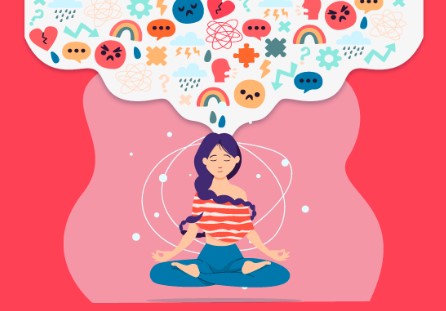In today’s fast-paced world, prioritizing mental and emotional well-being is essential. Self-care and therapy are two fundamental practices that contribute to maintaining a healthy mind and body. This article explores the significance of self-care and therapy, highlighting their roles in fostering resilience, reducing stress, and promoting overall well-being.

Understanding Self-Care
Self-care refers to the intentional actions individuals take to maintain their physical, mental, and emotional health. It encompasses a wide range of activities, from basic daily routines to more structured practices aimed at improving well-being.
Physical Self-Care
Physical self-care involves taking steps to ensure the body is well-nourished, rested, and active. Key aspects include:
- Exercise: Regular physical activity helps reduce stress, improve mood, and boost overall health.
- Nutrition: Eating a balanced diet rich in nutrients supports both physical and mental well-being.
- Sleep: Adequate sleep is crucial for cognitive function, emotional stability, and physical health.
- Hygiene: Maintaining personal hygiene contributes to overall health and self-esteem.
Mental and Emotional Self-Care
Mental and emotional self-care focuses on activities that enhance mental clarity and emotional stability. This includes:
- Mindfulness and Meditation: Practices like meditation, deep breathing, and mindfulness help reduce anxiety and increase emotional resilience.
- Hobbies and Interests: Engaging in activities you enjoy can provide a sense of accomplishment and joy.
- Relaxation Techniques: Techniques such as yoga, aromatherapy, and spending time in nature can help reduce stress levels.
- Setting Boundaries: Learning to say no and establishing healthy boundaries protects your mental and emotional energy.
Social Self-Care
Connections are vital for emotional health. Social self-care involves nurturing relationships and building a support network. This can include:
- Spending Time with Loved Ones: Quality time with family and friends strengthens bonds and provides emotional support.
- Joining Clubs or Groups: Participating in community activities or interest groups fosters a sense of belonging.
- Seeking Support: Talking to trusted friends or joining support groups can provide comfort and advice during challenging times.
The Role of Therapy
Therapy, or counseling, is a professional service aimed at helping individuals address mental health issues, emotional challenges, and personal growth. It provides a safe space for exploring thoughts, feelings, and behaviors with the guidance of a trained therapist.
Types of Therapy
There are various types of therapy, each with its unique approach and techniques. Some of the most common include:
- Cognitive Behavioral Therapy (CBT): Focuses on identifying and changing negative thought patterns and behaviors.
- Psychodynamic Therapy: Explores unconscious processes and past experiences to understand current issues.
- Humanistic Therapy: Emphasizes personal growth and self-fulfillment through a non-judgmental and empathetic approach.
- Dialectical Behavior Therapy (DBT): Combines cognitive-behavioral techniques with mindfulness practices, often used for treating borderline personality disorder.
- Family and Couples Therapy: Addresses relationship dynamics and helps improve communication and conflict resolution.
Benefits of Therapy
Therapy offers numerous benefits that contribute to overall well-being:
- Emotional Support: Therapists provide a non-judgmental space to express and process emotions.
- Insight and Awareness: Therapy helps individuals gain a deeper understanding of their thoughts, feelings, and behaviors.
- Coping Strategies: Therapists teach practical skills for managing stress, anxiety, and other mental health issues.
- Improved Relationships: Therapy can enhance communication skills and foster healthier relationships.
- Personal Growth: It encourages self-exploration and personal development, leading to greater life satisfaction.
Overcoming Stigma
Despite its benefits, therapy still faces societal stigma. It’s important to recognize that seeking help is a sign of strength, not weakness. Normalizing mental health care and encouraging open conversations about therapy can help break down these barriers.
Integrating Self-Care and Therapy
Combining self-care with therapy can create a comprehensive approach to mental and emotional well-being. While self-care practices help maintain daily balance, therapy provides deeper insights and strategies for long-term mental health.
Creating a Self-Care Plan
Developing a personalized self-care plan involves:
- Identifying Needs: Assess which areas of your life need attention (physical, mental, emotional, social).
- Setting Goals: Establish realistic and achievable self-care goals.
- Scheduling Time: Prioritize self-care activities in your daily or weekly schedule.
- Evaluating Progress: Regularly review and adjust your self-care plan as needed.
Seeking Professional Help
Recognizing when to seek therapy is crucial. Consider professional help if you:
- Experience persistent feelings of sadness, anxiety, or hopelessness.
- Struggle with daily functioning or maintaining relationships.
- Face major life transitions or traumatic events.
- Want to explore personal growth and self-improvement.
Conclusion
Self-care and therapy are integral components of a holistic approach to mental and emotional well-being. By prioritizing self-care and seeking professional support when needed, individuals can enhance their resilience, reduce stress, and lead more fulfilling lives. Embracing these practices not only improves personal health but also contributes to healthier, more supportive communities.

